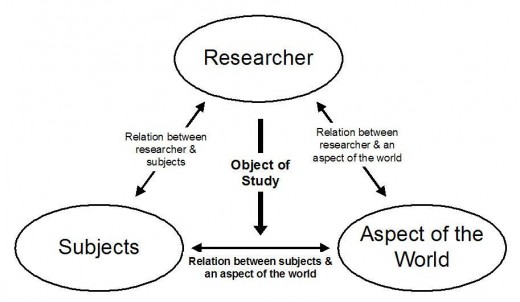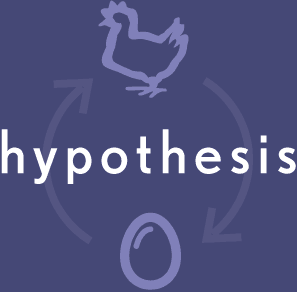Business Research Methods

Primary, Secondary, and Tertiary Distinctions
According to Cooper and Schindler,Business Research Methods; there are three levels of information sources, primary sources, secondary sources, and tertiary sources. The distinction between each source stems from each sources value. “As the source levels indicate, primary sources have more value than secondary sources, and secondary sources have more value than tertiary sources” (Cooper & Schindler, 2006). Primary sources are unique or creative products, historical or legal documents. Because it is first-hand information it is the most authentic source. Secondary sources are an explanation of a primary source. “Encyclopedias, textbooks, handbooks, magazine and newspaper articles, and most newscasts are considered secondary information sources” (Cooper & Schindler, 2006). A tertiary source can sometimes be a clarification or an interpretation of a secondary source. “Generally tertiary sources are represented by indexes, bibliographies, and other finding aids (e.g., Internet search engines)” (Cooper & Schindler, 2006).
A source evaluation bases the source on five different aspects, “purpose, scope, authority, and audience” (Cooper & Schindler, 2006). The purpose of the source speaks to the reason the site exists and what information it has to convey; the scope challenges the age of the information, missing data, and if the site needs other sites to support its claims. The authority envelops author or organization that supports the site, or work, and the origin of the facts presented. The audience is concerned with the who in relation to the expectation of people reading the information on the site or work offered.
Researcher’s Sole Sources are Secondary
Researchers are using secondary sources to validate their hypothesis or find information concerning something. Unless said researcher was performing experimentation's, and documenting their findings, they are going to use existing research through web site searches, encyclopedia’s, journals, articles, textbooks, magazines, newspaper articles and newscasts” (Cooper & Schindler, 2006). “Why reinvent the wheel” (unknown), if you do not have to. It is less expensive to use a credible secondary source, than become the primary source of information by doing one’s own study. The time taken to complete a secondary source search is a lot less compared to developing one’s own primary research. A manager may ask the question, does the research conducted come from a place that has a vested interest for the research to be either negative or positive, is it biased, or prejudicial? They may also need to check how old the research material is; outdated material will not supply realistic data.

Secondary Data Quality Problems
Some quality problems facing researchers when using secondary data are, source reliability and credibility. A researcher responsibility should be to make sure that the data used from a source is accurate and timely. Another consideration is that the research is unbiased and was collected with no conflict of interest. Another potential dilemma with quality concerns is topic availability. The sought information may not be accessible, or recent. “The problem of secondary data quality that a researcher must face is verifying and determining the value of the secondary sources the researcher would like to use (Cooper & Schindler, 2006). To verify credibility a researcher can cross reference facts to make sure the data has integrity. All attempts to use truthful and precise information should be employed. “To evaluate secondary sources a researcher must consider the purpose, scope, authority, and audience that the information is based on (Cooper & Schindler, 2006). By using these aspects a researcher can assure that their study reaches its maximum worth.

Qualitative Research Differs from Quantitative Research
When understanding qualitative research verses quantitative research, “to generalize, qualitative research is usually better for exploring, understanding, and uncovering, while quantitative research is generally better for confirming and clarifying"(Lash, 2008). In quantitative research the researcher is an unbiased spectator. That individual does not contribute or sway the subjects and the outcome by doing anything. In qualitative research the researcher is taking the contrary approach, and is completely becomes involved and engrosses one’s self in the process. “Managers basically do business research to understand how and why things happen; if the manager needs to know only what happened, or how often things happened, quantitative research methodologies would serve the purpose, but to understand the different meanings that people place on their experiences often requires research techniques that delve more deeply into people's hidden interpretations, understandings, and motivations; qualitative research is designed to tell the researcher how (process) and why (meaning) things happen as they do” (Cooper & Schindler, 2006).
Qualitative Verses Quantitative Data Research
Qualitative research differs from data in quantitative research by comparing words to numbers, but “All qualitative data can be coded quantitatively"(Trochim, 2006). It is important to know the differences in methodology when deciding how to use data between the two different research styles. “The researcher can use any knowledge they gain during research to adjust the data extracted from the next participant" (Cooper & Schindler, 2006). Because information adaptation, and flex is encouraged in qualitative research, and exact data without change is expected in quantitative research interpretation of data can be quite diverse. “Another way that qualitative and quantitative research differs in the way it is analyzed; in qualitative research human analysis, computer analysis, and human coding is used” (Cooper & Schindler, 2006). “In qualitative research the distinction between facts and judgment is harder to make; in quantitative research data is analyzed by a computer using statistics and mathematical calculations, a precise distinction between facts and opinions is available in this type of research” (Cooper & Schindler, 2006).


Which Qualitative Research Method is Recommended?
As a manufacturer of small kitchen electrics a new task of integrating some innovative European designs to the US market would require qualitative research because qualitative research is more interested with learning “why people behave as they do: their knowledge, attitudes, beliefs, fears” (Ewings, 2011, Helpsheet 9, PA Research & Development).The method of choice would be a focus group because a focus group would allow selection of individuals to participate by discussing the topic of the new designs, and would offer the ability for the group to see and handle the merchandise. Ideal focus groups are small assembly of people chosen by the researcher, or in this case myself; and would collectively optimize the sample size to reflect the chosen target consumer for this product. the benefit of a small focus group is“its members do not feel intimidated but can express opinions freely; a topic guide to aid discussion is usually prepared beforehand and the researcher usually ‘chairs’ the group, to ensure that a range of aspects of the topic are explored, and the session is tape-recorded, transcribed, and analyzed” (Ewings, 2011, Helpsheet 9, PA Research & Development). This method would best suit the objection of measuring the US consumer’s readiness and wiliness to purchase an already selling product within the European market.
Business Research Methods
References
Cooper, D. R., & Schindler, P. S. (2006). Business Research Methods. New York, NY: McGraw-Hill.
Ewings, P (2011) Qualitative Research Methods. PA Research & Development.
Lash, J (2008) How to be a Good Product Manager. Retrieved June 27, 2011.
Trochim, W.(2006), The Qualitative-Quantitative Debate. Retrieved June 27, 2011.
UA-52893102-1








